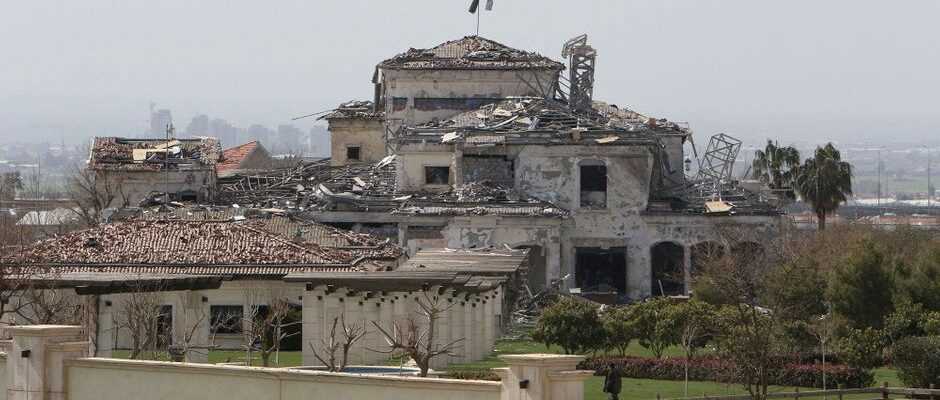The authorities of Iraqi Kurdistan indicated that “12 ballistic missiles” fired “outside the borders of Iraq, and more precisely from the East”, had targeted the American consulate in Erbil on Sunday, without causing any casualties.
The Revolutionary Guards, the ideological army of the Islamic Republic of Iran, claimed responsibility for the missile fire on Erbil, in Iraqi Kurdistan, on Sunday, claiming to have targeted an Israeli “strategic center” and threatening the Jewish state with new “destructive” operations. The authorities of Iraqi Kurdistan (north) had previously indicated that “12 ballistic missiles” fired “outside the borders of Iraq, and more precisely from the East”, had targeted the American consulate in Erbil on Sunday, without causing any casualties.
Iraq experienced an upsurge in armed rocket or drone attacks earlier this year, as Tehran and several allied groups commemorated the second anniversary of the death of Iranian general Qassem Soleimani and his Iraqi lieutenant Abu Mehdi al-Mouhandis , eliminated by Washington in a drone strike on Iraqi territory. Iraq shares its long eastern border with Iran, which plays an essential political and economic role in its neighbor.
“
A civilian site
“
On their Sepah News site, the Islamic Revolutionary Guards claimed that “the ‘strategic center of Zionist conspiracy and vice’ had been targeted by powerful advanced missiles”. Reacting to Tehran’s accusations, the Kurdistan authorities then said in a statement that the targeted site was a “civilian site”, castigating “a justification aimed solely at concealing this crime”. “These are baseless allegations,” the governor of Erbil assured a press conference on Sunday: “There are no Israeli sites in this region, there is only the new building of the American consulate”.
This attack takes place nearly a week after the death in Syria of two senior Revolutionary Guards officers, killed in an attack attributed to Israel. “The Zionist regime (Israel, editor’s note) will pay for this crime,” the Guardians promised on Tuesday. Israel did not react immediately. A spokesman for the US State Department for his part assured that there was “no damage or casualty at any US government facility”. “Iran has targeted the Kurdistan region on several occasions, and the lack of reaction from the international community is very worrying,” the Kurdish authorities lamented on Sunday.
Before dawn on Sunday, an AFP correspondent in Erbil heard three explosions. Ziryan Wazir was in his taxi when the strikes took place. “The windows of my car exploded, I was injured in the face,” says the thirty-year-old bedridden, his head bandaged. Two people were “slightly injured” by the shots, according to the governor of Erbil, Oumid Khouchnaw, who specified that the missiles had mainly fallen “on empty land”. The local television channel Kurdistan24, whose studios are not far from new premises of the American consulate, published images of its damaged offices.
Reprisals
In January 2020, Iran fired 22 surface-to-surface missiles into Iraq at two bases housing American soldiers, in retaliation for Washington’s elimination of Iranian general Qassem Soleimani a few days earlier on Iraqi territory. At the end of January 2021, six rockets were fired at Baghdad International Airport, causing no casualties. In Erbil, the last such attack dates back to September, when “armed drones” targeted the airport. These rocket attacks or booby-trapped drones which target American interests and the troops of the international anti-jihadist coalition in Iraq have never been claimed, but Washington accuses pro-Iran Iraqi factions, which are demanding the departure of American soldiers.
Sunday’s attack also comes as talks to revive the 2015 Iran nuclear deal in Vienna were abruptly suspended, following new demands from Moscow. Concluded by Iran on one side, and the United States, China, France, the United Kingdom, Russia and Germany on the other, this pact was supposed to prevent Tehran from acquiring the bomb atomic in exchange for the lifting of the sanctions which are suffocating its economy. But it crumbled in 2018 after Washington pulled out, reinstating its measures against Iran. In response, Tehran gradually freed itself from the limits imposed on its nuclear program.
Any reproduction prohibited
